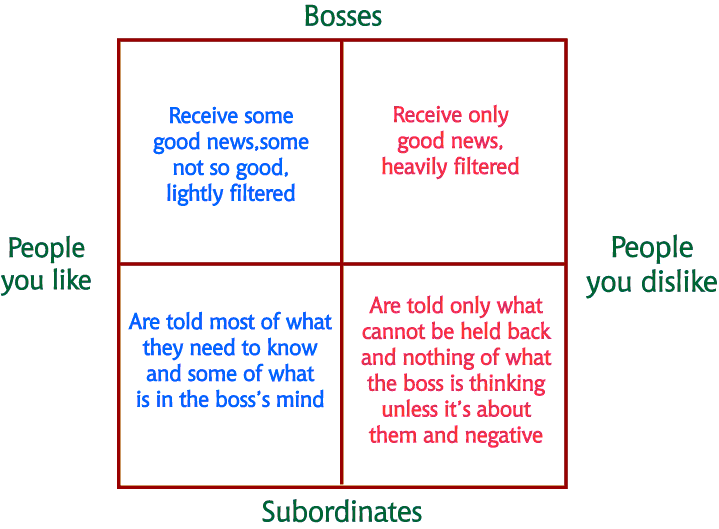A nation of fast food, with leaders to match
One of the less-noticed problems with today’s cult of speed is that it promotes superficial thinking and mental laziness.
If you feel you have no time available, the temptation to cut mental corners and jump to some well-known, supposedly tested solution can be overwhelming; even if you feel, deep down, that it’s not really the right solution to your problem. There’s no time allowed for anything else. But cheap, superficial thinking is like cheap, shoddy manufacture: it won’t stand up long to the normal wear and tear of life.I’ve often written about Hamburger Management because the comparison with fast food is so close. People in a constant rush delight in fast food because it’s . . . well, fast. You can make your choice, get your order, and gulp it down in a few minutes. It’s easy, convenient, and—above all—quick. Fast food is also designed to deliver a swift burst of flavor, via high sodium, high sugar, and high fat. We all know it isn’t healthy, but, hell, it’s quick, cheap, takes no real thought to order, and it tastes kinda good at the time.
Hamburger management is exactly like that. It uses whatever approach is quickest, cheapest, takes least thought, and delivers an immediate burst of feel-good results. And, just as a diet of fast food takes time to produce obesity, diabetes, and a myriad other ills, the probelms only show up later.
The more organizations put pressure on managers to handle impossible workloads and provide instant, infallible answers, the more they force them into macho, quick-fix styles of operation. Speed becomes almost the only criterion for choosing how to manage. Leaders become obsessed with pre-packaged answers, with following “industry best practice,” with copying the latest fashion trend in business. All because they can no longer allow themselves the patience, the time, or the energy, to think for themselves. In time, they forget how to do. Many even teach those following them that independent thinking is an impractical idea.
“Management by in-flight magazine"
Many organizations run on what many have termed “management by in-flight magazine." That’s making choices based on the kind of 300-word lists of “The 10 all-time best management/marketing/leadership/business tips” you find in in-flight magazines. Why pick on those publications? Because many of these managers are almost constantly in transit and being on a plane provides one of the few times they ever have free for reading.When you’re drowning in data and wordy, jargon-laden reports, brief tips are like a life-belt. They’re easy to grasp, quickly absorbed, and simple to digest. For the Hamburger Manager, anything that can’t be taken in and applied within a few minutes at most is dismissed as “impractical.”
There goes just about all theory, all discussion, all exploration, and all careful consideration: dismissed as “impractical” on no better basis than that he or she hasn’t the time to read it, let alone think about it. No wonder we live in times when superficial articles written by journalists (also on crippling deadlines), and simplistic books by self-appointed gurus, have far greater impact than careful works of scholarly analysis and critical appreciation.
Slow down . . . for your mind’s sake too
Slowing down isn’t only good for your physical health. It’s vital for your mental abilities and intellectual development too. The world cannot be expressed only in neat, 10-item lists and questions with multiple-choice answers, however convenient and time-saving that might be. It isn’t possible to swallow true understanding in bite-sized, batter-coated nuggets. Seeing the right way to proceed takes time and effort. If you aren’t willing, or able, to make that effort, you shouldn’t be in a leadership position.To be successful in the long-term, you must think for yourself. You must be able to distinguish between superficially attractive, jargon-laden platitudes and genuine insights. You must be able to ignore snake-oil sellers in favor of genuine thinkers, even if the mental food those thinkers offer takes a great deal of careful chewing.
Investors quickly learn that if something appears too good to be true, that’s what it is. Sadly, many managers have still to learn this simple fact. Instead, rushed, harried, and confused, they rely on mass-produced cliches and patented nostrums to solve their problems. They’ve become physically hyper-active and mental coach potatoes at the same time. And at a time when organizations in developing countries are catching up fast, the organizations that promote such managerial styles in cause of quick profits are risking their futures to innovations discovered elsewhere.
The empire of Rome collapsed when the Romans relied on paying outsiders to do their fighting for them. I wonder what will happen if today’s major corporations go on relying on superficiality, while paying consultants (who aren’t much better) to do their thinking for them?
Labels: civilized work, Hamburger Management, innovation, management attitudes, short-termism









